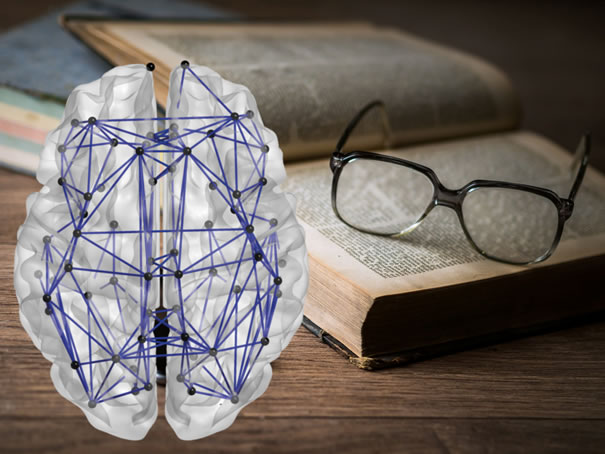2019-07-28

What is the only constant in the theory of relativity? Can you name the capital of Sweden? Who wrote "The Divine Comedy"? Some individuals are more capable of answering such questions than others. Our knowledge about the world around us makes us who we are, and profound general knowledge can help us navigate through everyday life unerringly. The individual pieces of information constituting our general knowledge are likely to be encoded on a microstructural level, namely within the myriads of synapses of our brain. This gives rise to the question whether interindividual differences in general knowledge can also be related to macrostructural differences in the biological properties of the brain. Now, for the first time, a team of scientists from Bochum and Berlin has examined the neural correlates of general knowledge. They reported their results in "European Journal of Personality".
Together with colleagues from Ruhr University Bochum and Humboldt University Berlin, Dr. Erhan Genç examined the brains of 324 men and women using diffusion tensor imaging. This enabled the scientists to reconstruct the trajectories of nerve fibers in the brain and to gain insight into its structural network. Graph theoretical computations allowed the researchers to assign an individual value to each of the participants' brains reflecting the efficiency of this structural network. In addition to MRI measurements, participants also completed a general knowledge questionnaire developed in Bochum, the so-called Bochumer Wissenstest. This test included more than 300 questions from various fields of general knowledge, such as art and architecture or biology, physics and chemistry. Finally, Dr. Erhan Genç and his colleagues investigated whether the efficiency of the brain's structural network was associated with the amount of general knowledge a person holds.
The scientists were able to show that individuals with a very efficient fiber network actually had more general knowledge than those with a less efficient network. Importantly, this association was not driven by other factors such as age or sex. Given that general knowledge is likely to be stored in the form of single information fragments scattered across the whole brain, it is conceivable that an efficiently organized network of nerve fibers could provide a beneficial infrastructure for the storage of new information. In the long run, this might foster general knowledge acquisition and lead to higher results in respective test instruments.

What is the only constant in the theory of relativity? Can you name the capital of Sweden? Who wrote "The Divine Comedy"? Some individuals are more capable of answering such questions than others. Our knowledge about the world around us makes us who we are, and profound general knowledge can help us navigate through everyday life unerringly. The individual pieces of information constituting our general knowledge are likely to be encoded on a microstructural level, namely within the myriads of synapses of our brain. This gives rise to the question whether interindividual differences in general knowledge can also be related to macrostructural differences in the biological properties of the brain. Now, for the first time, a team of scientists from Bochum and Berlin has examined the neural correlates of general knowledge. They reported their results in "European Journal of Personality".
Together with colleagues from Ruhr University Bochum and Humboldt University Berlin, Dr. Erhan Genç examined the brains of 324 men and women using diffusion tensor imaging. This enabled the scientists to reconstruct the trajectories of nerve fibers in the brain and to gain insight into its structural network. Graph theoretical computations allowed the researchers to assign an individual value to each of the participants' brains reflecting the efficiency of this structural network. In addition to MRI measurements, participants also completed a general knowledge questionnaire developed in Bochum, the so-called Bochumer Wissenstest. This test included more than 300 questions from various fields of general knowledge, such as art and architecture or biology, physics and chemistry. Finally, Dr. Erhan Genç and his colleagues investigated whether the efficiency of the brain's structural network was associated with the amount of general knowledge a person holds.
The scientists were able to show that individuals with a very efficient fiber network actually had more general knowledge than those with a less efficient network. Importantly, this association was not driven by other factors such as age or sex. Given that general knowledge is likely to be stored in the form of single information fragments scattered across the whole brain, it is conceivable that an efficiently organized network of nerve fibers could provide a beneficial infrastructure for the storage of new information. In the long run, this might foster general knowledge acquisition and lead to higher results in respective test instruments.